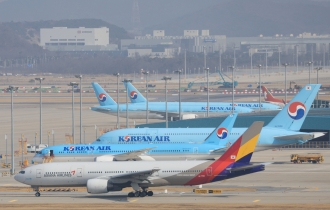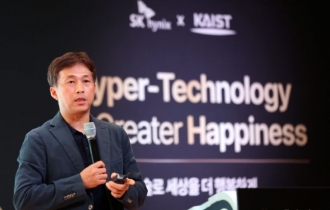Inside the FSC ruling on Samsung BioLogics
[THE INVESTOR] A long-standing controversy over Samsung BioLogics’ accounting practices has concluded for the time being as the country’s financial watchdog ruled that it clearly violated related rules.
The decision, however, only touched upon a relatively minor issue that the company “intentionally dropped” a regulatory filing.

The authorities are expected to make another decision to address the heavier charges involving its change of accounting methods for its stake in Samsung Bioepis, which invited suspicions of using the new standard to inflate Samsung Biologics’ 2015 earnings ahead of its initial public offering the following year.
Analysts here downplayed the negative impact of the ruling as the company avoided a potential delisting from the stock exchange. But Samsung BioLogics has a long way to go to counter the FSC which plans to refer the case to prosecutors.
Below is a rundown of what happened with the FSC and what it all means.
Disclosure violation
The FSC found Samsung BioLogics guilty of not disclosing crucial information linked to Samsung Bioepis, its joint venture with US firm Biogen. The company belatedly revealed that its US partner Biogen had a call option to increase its stake in Samsung Bioepis in its 2015 financial report, three years after the agreement was signed by the two firms when they established Samsung Bioepis.
The FSC claimed that Samsung BioLogics should’ve given a footnote about details of the option and how it will affect the company’s ownership in the joint venture, as well as the fact that Samsung BioLogics had an obligation to finance or arrange funds for Samsung Bioepis for drug development.
The FSC said Samsung Biologics was aware that leaving out such information could constitute a violation of accounting rules.
Stalling for time
The FSC has delayed its decision on the main allegation that Samsung BioLogics broke the rules while altering the accounting methods for its stake in Samsung Bioepis.
The top regulator requested the Financial Supervisory Service, which conducted a yearlong investigation on the Samsung unit, to provide a new audit report for the final decision.
In May, the FSS said the company breached rules as it arbitrarily changed its accounting method to reflect Samsung Bioepis’ market value instead of its book value. Under the new method, the biosimilar maker had a market value of at least 5 trillion won (US$4.43 billion) at that time, compared to some 330 million won in book value. The FSC didn’t provide a detailed timeframe on when it will make a ruling, saying “as soon as we receive a new report from the FSS.”
Is delisting on the cards?
The answer is no. The country’s bourse operator Korea Exchange confirmed that the FSC’s ruling doesn’t call for putting it under review of delisting. It’s because the disclosure violation did not affect the firm’s net profit or equity capital.
“From investors’ perspective, the only risk over Samsung BioLogics’ accounting fraud issue is delisting. Being slapped with fine of 10 billion won or 100 billion won won’t sway the corporate value of Samsung BioLogics which has a market cap of 28 trillion won. If the punitive measure is not delisting, the impact will be insignificant,” said Oh Byung-yong, an analyst at Taurus Securities.
Link with the Samsung merger
The FSC didn’t rule on whether there was link between Samsung BioLogics and the 2015 merger between Samsung C&T and Cheil Industries.
“Our review was focused on whether the company committed accounting fraud and violated regulatory filing requirements. We did not consider whether it affected the secondary transaction,” FSC Vice Chairman Kim Yong-beom said.
Civic groups criticized the watchdog for ruling in favor of the Samsung unit, claiming that the company’s omission of financial disclosures played a major role in the controversial merger.
When shareholders of Samsung C&T opposed the merger, arguing that it was unfair and favored Cheil shareholders including the Samsung founding family, the firm justified the merger ratio citing the high potential of Cheil’s stake in Samsung Biologics. Samsung C&T is the largest shareholder of Samsung BioLogics with a 43.44 percent stake.
The People’s Solidarity for Participatory Democracy said that Samsung Electronics Vice Chairman Lee Jae-yong took a filthy profit of over 1 trillion while the state-run National Pension Service lost 200 billion won through the merger.
By Park Han-na (hnpark@heraldcorp.com)
EDITOR'S PICKS
- Seoul shares rattled by Israeli attack on Iran; Kospi dips to nearly 11-week low
- S-Oil donates W560m to support firefighters
- LG CNS teams up with Yonsei University to nurture AI specialists
- Polestar 4 to make Korean debut in June
- S. Korea pledges W23tr venture capital fund for green investment at G20 meeting
- Sungsimdang outperforms bakery giants to log sales over W100b
- France rejects opening Paris flight routes to T'way Air, deals blow to Korean Air merger
- SK hynix chief underscores chip cooperation between Korea, US















